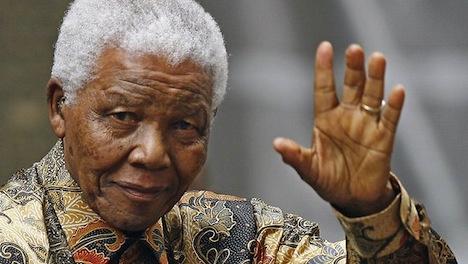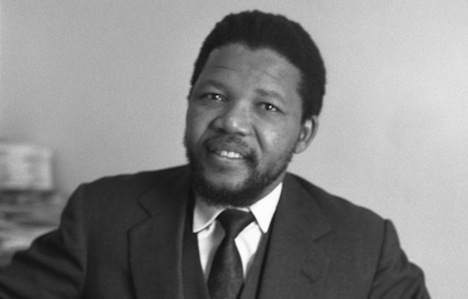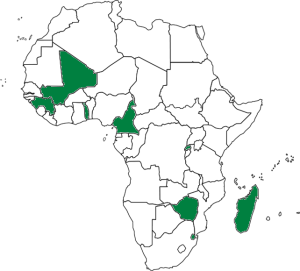Guest post by Andrew J. Novak


Nelson Mandela, who achieved nearly mythical status as the first post-apartheid president of South Africa, received the name ‘Nelson’ from his teacher Miss Mdingane on his first day of primary school in a small village in the Eastern Cape, as part of a custom at the time of providing African children with Christian names. 
Before that he was known by his birth name Rolihlahla, ‘troublemaker’ in colloquial isiXhosa, which appears now in retrospect both endearing and prescient. Formal isiXhosa uses clan name as an honorific, referring to a family’s ancestor; Mandela’s was Madiba, the name of a chief who ruled in Transkei in the 18th century. When he completed his traditional initiation rites of manhood at age sixteen, Mandela was given the name Dalibhunga, ‘convener of the dialogue,’ another name that seems strangely appropriate decades later. Later in life, he would be known as Tata (father) and Khulu (grandfather) by many South Africans regardless of their own age, as patriarch of a new multiracial democracy. He was Papa to his third wife Graça Machel, the former first lady of Mozambique, whose life, like his, bore the rugged scars of a nation struggling for independence.
Perhaps the name that most defined his life’s eventual course was a fake one: David Motsamayi, a name he assumed to secretly leave South Africa in 1962 to travel across the continent raising the international profile of the African National Congress (ANC). He received military training in Morocco and Ethiopia and raised money from the political leaders of several North and West African countries before traveling to London where he met with anti-apartheid activists and reporters. Upon his return to South Africa, he was arrested at a police roadblock and placed on trial for inciting workers’ strikes and leaving the country illegally. He was convicted and sentenced to five years in prison in Pretoria before the police uncovered evidence of his role in the founding of the ANC’s military wing, Umkhonto we Sizwe, Spear of the Nation.
In the famous Rivonia trial, he was convicted of four counts of sabotage and conspiracy to violently overthrow the government and sentenced to life imprisonment. For the next eighteen years of his life, he lived in a small cell on Robben Island until a journalist’s slogan ‘Free Mandela’ started an international campaign that culminated in a UN Security Council resolution and his eventual transfer to the relative comfort of two mainland prisons. On the brink of a low-intensity civil war for the next ten years, the South Africa outside Mandela’s cell had changed, and, on February 11, 1990, he was released from prison on live television.
Despite his early legal training and the 1952 establishment of Mandela & Tambo, the country’s first black-African owned law firm, Mandela did not receive his law degree until he completed his correspondence courses in his last months in prison. Nonetheless, Mandela the lawyer contributed more to development of the rule of law in South Africa than any other person in modern times. In negotiations at the Convention for a Democratic South Africa from 1991 to 1992, he and South African President F.W. de Klerk succeeded in drafting an interim constitution with the strong separation of powers and a bill of rights. They also established a timetable for multiracial elections and agreed on the structure of a government of national unity, a process that jointly won them the Nobel Peace Prize in 1993. The new constitution of South Africa, one of the most progressive in the world, entered into force in May 1996.
Though his successor, Thabo Mbeki, was a more experienced administrator, Mandela provided the moral leadership that South Africa needed in its democratic transition during his five-year term as president. Mandela the reconciler oversaw the establishment of a truth commission with Archbishop Desmond Tutu as chair to investigate crimes committed under apartheid by both sides. He tackled the huge disparity in wealth, ending discrimination in social services and helping build national infrastructure: by 1999, housing for three million people had been constructed; three million people were connected to telephone lines and clean water, and two million to the electricity grid; 1.5 million children were enrolled in the education system for the first time; and 500 health clinics were upgraded.
In retirement, Mandela devoted himself to HIV/AIDS activism through his foundation, supporting the protests to provide free anti-retroviral drugs to poor South Africans and allow the government to purchase generics produced in Brazil, India, and Thailand. In the years that followed, he spoke out against the war in Iraq and Mugabe’s continued rule in Zimbabwe, and in favor of South Africa’s 2010 World Cup bid. He had largely retreated from public life by 2004, but his international statute did not diminish.
He died as he had lived, a fateful mix of youthful troublemaker and eminent patriarch.
Andrew Novak is the adjunct professor of African law at American University, Washington College of Law
![]()




